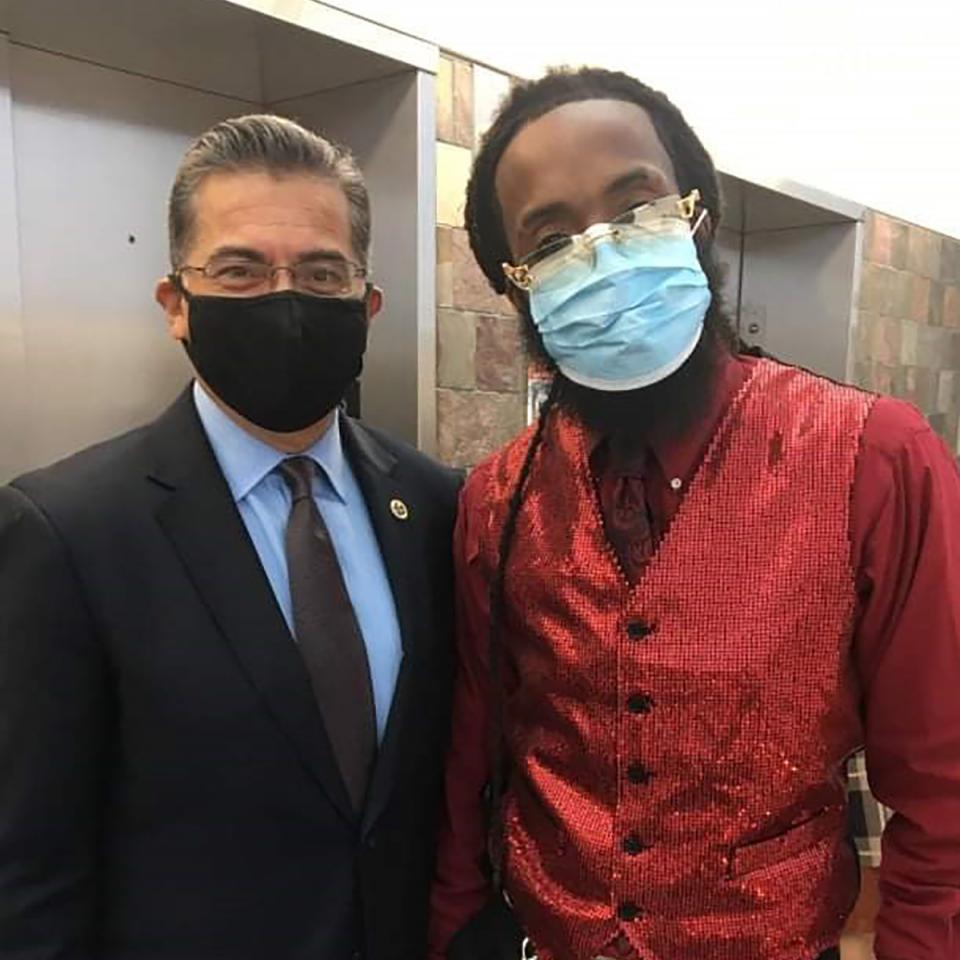Have you ever felt like throwing up your hands in frustration? Sometimes it can feel like “nothing” is working or “everything” is against you. Each of us has strengths. Even if the odds are truly against us, there are actions we can take.
The Mayor’s Office of Homeless Services has declared a winter shelter warning for Tuesday, January 14, 2025 at 4 pm until Thursday, January 14, 2025, at 9 am. Call 211 (available 24/7) or 443-984-9540 to connect with shelter. Get more info here.



01.24.22
Baltimoreans are three times more likely to die from drug overdose than violent crime.

And with 100,000 overdose deaths reported nationally in 2021—up from 70,000 in 2019—it feels like the country is also gripped by an opioid pandemic.
That was the message from Health and Human Services Secretary Xavier Becerra on a recent tour of our Fallsway clinic, where he publicly announced the Department’s new federal overdose prevention strategy.
"As a society we've basically said, 'you're broken, you're damaged, you're criminal,’" says Odell Witherspoon, addictions counselor at Rightyme Behavioral Health Center and graduate of our medication-assistance treatment (MAT) program.
Decades of criminalizing addiction and restricting access to treatment simply have not worked.
Those of us who provide addiction treatment services need to examine our practices to be sure that we are not part of this problem.
“People arrive to treatment in a vulnerable place,” says Odell. “If they feel dehumanized by the process, it can push someone back out into the street.”
“For years a lot of clients disengaged in treatment because our barriers were so high,” says MAT Expansion Project Manager Erica Brown. “We found that we were missing a huge cross-section of people who still really needed care.”
We required strict attendance to multiple group and individual counseling sessions each week in order to get medications like Suboxone. And clients who continued to show evidence of opioids or other substances in their regular urinalysis tests were referred out of our program. These requirements created a space where growth and hope were tied to “clean” urine samples—when what someone like Odell really wanted was medication. In the meantime, the number of people coming to us for treatment declined.
Over the last two years, we have recreated our MAT program to be more deeply rooted in the practice of harm reduction: Providing people with the services they identify as helpful without making access unnecessarily stressful. We now offer MAT more openly. Nurses provide fentanyl test strips and syringe services that promote safer, informed use. And therapy is an option rather than a string attached to medication. We have also become strong advocates for Overdose Prevention Sites.
Nearly 500 people enrolled in our MAT program in 2021—roughly 150 more than in 2019. With the addition of a full-time and part-time nurse dedicated to MAT, it seems word is reaching the right people.
The rising enrollment is no surprise to Odell. As a counselor, he regularly refers his clients to Health Care for the Homeless and says that word-of-mouth is the best way to rebuild trust in the community. “One person can drive a multitude," he says. "When you finally feel heard and empowered in that space, you make sure everyone knows it.”
"There’s always more for us to learn,” adds Erica, reflecting on the program’s evolution. “We’re always looking for client feedback, asking, ‘What can we do better?’”
The adoption of a harm reduction approach isn't confined to Health Care for the Homeless. Even as Governor Hogan vetoed a bill to decriminalize drug paraphernalia last year, city and federal leaders are starting to recognize that expanded access to treatment is the best overdose prevention strategy.
More Recent News
Send one email today to advocate for housing that serves all Marylanders. Let Governor Moore know that more permanent supportive housing is a good thing—and urge him to stay the course.
At our annual staff holiday party, we take time to honor and celebrate staff members who best represent our Core Values and one HCH-er at Heart.
Larrice is a mother, grandmother, teacher, cook and storyteller who was recently featured in our original documentary, “Taking Care: Portraits from Baltimore.”


